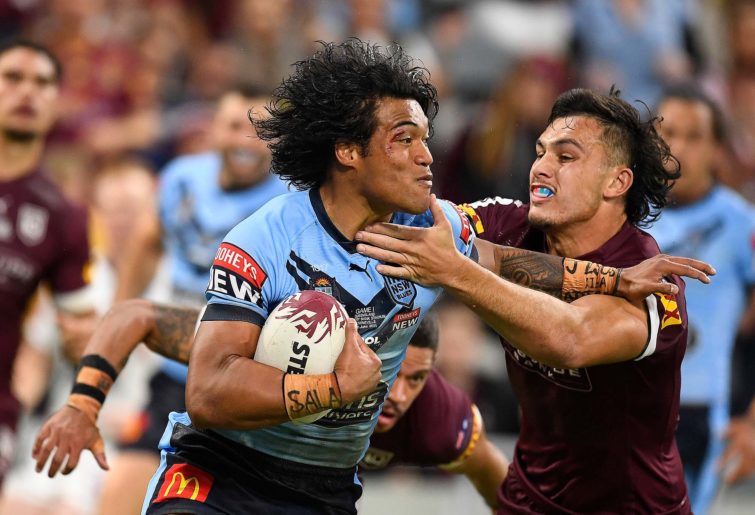NSW Blues 2024 State of Origin predicted team: Maguire set to overhaul squad in search of winning combination
New coach Michael Maguire is considering as many as 50 players for the State of Origin series opener with not even captain James Tedesco…
Opinion
How often has each of us had a doubt about a so-called knock-on during a game and what it meant to the opposing team?
More so in recent times and certainly a lot lately with the fingertip touching of a ball following a high kick that often means awarding or not awarding a following try.
In a game that is meant to have uniform decisions on interpretation of the rules of everyday breaches, our referees express wide variations on what constitutes a knock-on.
During my youth some 60-odd years ago, a knock-on occurred when the ball was lost forward, on the ground, or resulted in an advantage to the offending side, for example, being dropped sideways where the ball then ran forwards, so that if the ball was then picked up by the offence it would have had an advantage.
As far as I remember, if the ball was lost into a defending player and then regained by the ball player or a teammate who was onside, it was not adjudged to be a knock-on. It all made sense to me and was, most of the time, logical.

(Photo by Ian Hitchcock/Getty Images)
We still allow a knock-on to be legal play if the ball is dropped but kicked before it hits the ground, whether or not it goes on to hit an opposing player without hitting the deck, and that rule doesn’t seem to have been caught up in the rest of it.
Nowadays, it depends on which referee it is or which week it is – and there seems to be no possibility of sorting it out because the decision is often not logical. It is certainly not consistent from one offence to another or one referee to another, on top of which there are interpretations from the Bunker, often different again.
Sound confusing? Well of course it is, and why it ever came to this, I for one will never know. But to be practical, there doesn’t appear to be any attempt to resolve it by the judiciary or the referees, so here is my solution.
Change the name of the offence to ‘lost ball’. The ball has to be lost for the current ruling practice to apply, and although I’m not a fan of penalising a team for not gaining an advantage from losing the ball, I don’t see the possibility of a common-sense change back to what a knock-on once was, or ought to be, and this at least gets away from the confusing misnomer of a knock-on.
As this appears to be a universal problem, someone brighter than me somewhere in the world should come up with a better solution. Otherwise, consider making this change to the rule internationally as well as locally.